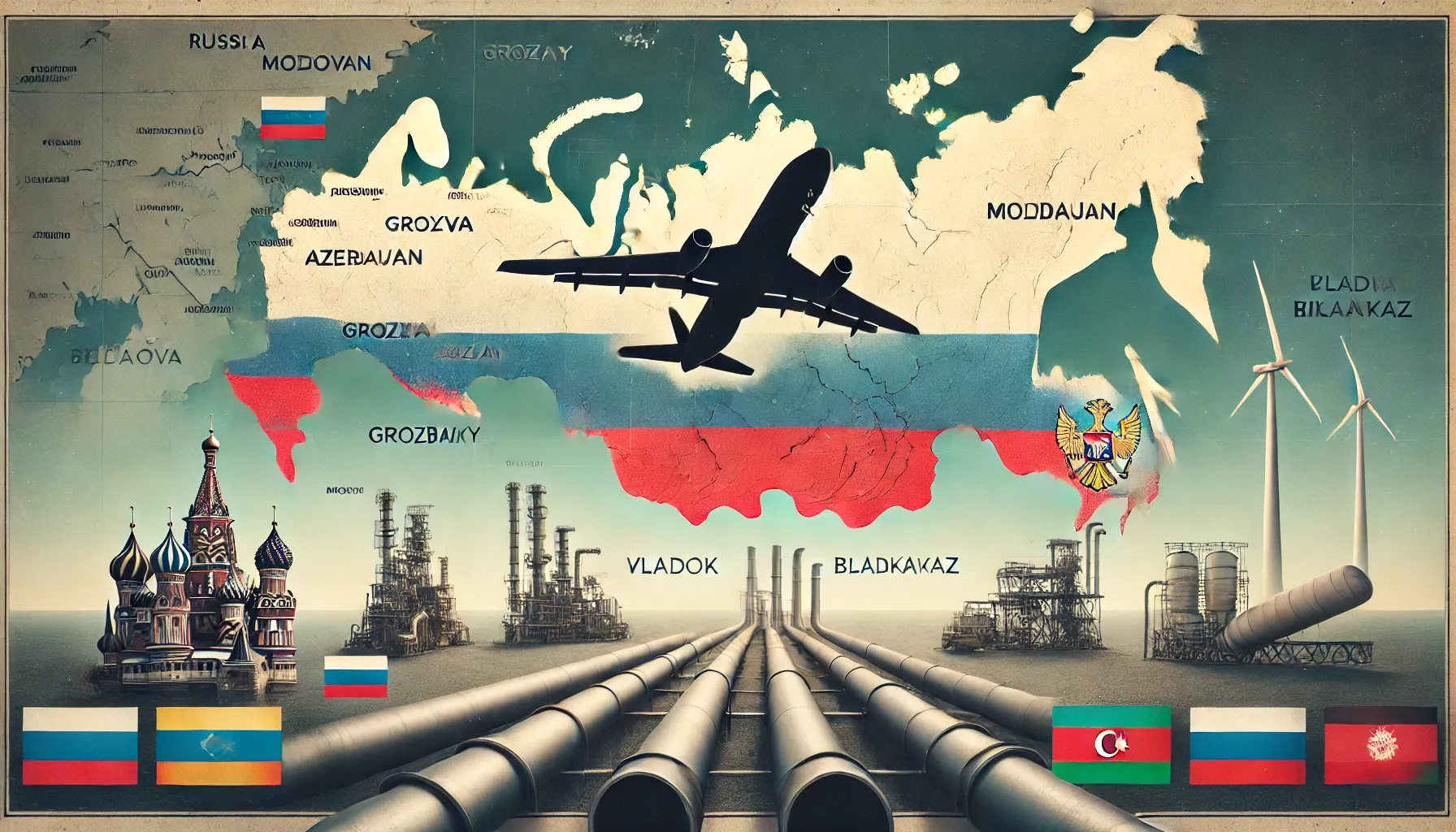Putin apologized to Azerbaijan for a plane crash amid airspace tensions. Belarus pardoned 20 political prisoners, while Russia’s Gazprom announced a halt to gas supplies to Moldova over debt issues.

Eastern Europe and Central Asia remain at the center of global focus as significant geopolitical developments unfold. Russian President Vladimir Putin extended apologies to Azerbaijani President Ilham Aliyev following the tragic crash of an Azerbaijan Airlines plane on 25 December in Kazakhstan. Simultaneously, Belarusian President Alexander Lukashenko announced the pardon of 20 individuals considered political prisoners by human rights activists. Adding to the tension, Russia’s Gazprom declared its intent to halt gas supplies to Moldova, citing a debt dispute. These events reflect the volatile interplay of diplomacy, energy security, and human rights in the region.
Putin’s Apology and Azerbaijan Airlines Crash
The Incident and Kremlin’s Explanation
- The Azerbaijan Airlines plane crashed in Kazakhstan on 25 December, during an attempt to land in Grozny, Russia.
- The Kremlin explained that Ukrainian drones were actively attacking Grozny, Mozdok, and Vladikavkaz at the time, and Russian air defenses were engaged in repelling these attacks. The statement read: “During this time, Grozny, Mozdok, and Vladikavkaz were being attacked by Ukrainian combat drones, and Russian air defense was repelling these attacks.”
Aliyev’s Statement and Call for Accountability
- Azerbaijani President Ilham Aliyev alleged that “external physical and technical interference” caused the crash, leading to a complete loss of control of the aircraft.
- The president demanded accountability, urging Russia to ensure civilian safety in its airspace.
International Responses to the Crash
Ukraine’s Reaction
- Ukrainian President Volodymyr Zelenskyy criticized Russia's narrative and demanded an independent investigation. He stated: “Russia must provide clear explanations and stop spreading disinformation.”
- Ukraine emphasized that such incidents threaten regional air safety and diplomatic relations.
EU’s Call for a Swift Investigation
- Kaja Kallas, the EU’s top diplomat, called for a “swift and independent probe” into the incident.
- The EU expressed concerns over escalating risks to civil aviation in regions impacted by military activities.
Belarus Pardons Political Prisoners
Details of the Pardons
- Belarusian President Alexander Lukashenko announced the pardon of 20 individuals, whom human rights activists describe as political prisoners.
- The move comes amid preparations for Belarus’s upcoming presidential elections, where Lukashenko is expected to extend his decades-long rule.
Reactions and Skepticism
- Critics argue the pardons are symbolic and aimed at mitigating international criticism.
- Human rights groups highlight ongoing repression, describing the pardons as insufficient to address systemic abuses in Belarus.
Energy Security: Gazprom’s Halt to Moldova
Announcement and Implications
- Gazprom, Russia’s state-owned energy company, announced it would cease supplying gas to Moldova starting 1 January, citing unpaid debts.
- The decision intensifies fears of a broader energy crisis in Eastern Europe, as Moldova and neighboring countries struggle to secure alternative energy supplies.
Moldova’s Response
- The Moldovan government has declared a state of emergency to prepare for the fallout.
- Officials are actively seeking alternative energy solutions to reduce reliance on Russian gas.
Other Geopolitical Developments
Russian and Ukrainian Military Activity
- Ukraine’s Offensive: Ukraine claimed to have struck a depot for Shahed drones in Russia’s Oryol region, reducing Russia’s capacity for drone attacks.
- North Korean Troops: Reports suggest North Korean soldiers deployed in Russia’s Kursk region are facing heavy casualties, with allegations of neglect by Russian forces.
Cybersecurity Concerns
- Italian authorities are investigating pro-Russian cyberattacks targeting critical infrastructure, including Milan’s airports and the Italian foreign ministry.
- The attacks highlight the growing cybersecurity vulnerabilities amid escalating geopolitical tensions.
US Military Aid to Ukraine
- The Biden administration is set to announce a $1.25 billion military aid package for Ukraine, focusing on air defense systems and logistical support.
- This move underscores continued US support for Ukraine as tensions persist in the region.
Source: THE GUARDIAN





